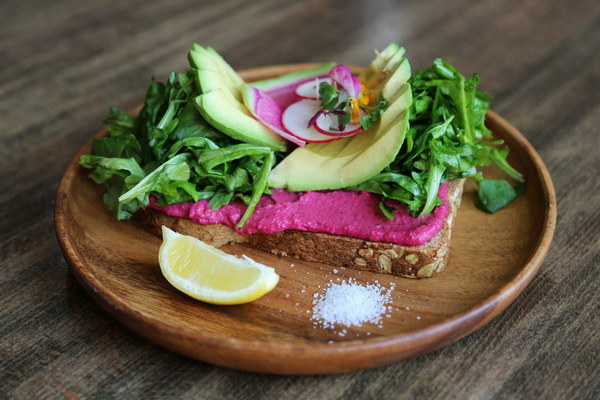Unlocking the Power of Nutrition A Comprehensive Guide to Colon Cancer and Dietary Interventions
Colon cancer is a significant health concern worldwide, affecting millions of individuals each year. While medical treatments play a crucial role in managing the disease, dietary interventions have emerged as a vital component in the fight against colon cancer. This article delves into the power of nutrition, offering a comprehensive guide to colon cancer and dietary interventions.
Introduction
Colon cancer, also known as colorectal cancer, is a type of cancer that starts in the colon or rectum. The disease is often asymptomatic in its early stages, making early detection challenging. However, research suggests that dietary interventions can lower the risk of developing colon cancer and improve the prognosis for those diagnosed with the disease.
1. The Role of Nutrition in Colon Cancer
Nutrition plays a pivotal role in the prevention and management of colon cancer. A balanced diet rich in fruits, vegetables, whole grains, and lean proteins can help reduce the risk of developing the disease. On the other hand, excessive intake of processed foods, red meat, and alcohol can increase the risk.
1.1. Fruits and Vegetables
Fruits and vegetables are packed with essential vitamins, minerals, and antioxidants that can protect against colon cancer. Studies have shown that consuming at least five portions of fruits and vegetables daily can reduce the risk of developing the disease by up to 20%.
1.2. Whole Grains
Whole grains, such as brown rice, whole wheat, and oats, contain fiber and other beneficial compounds that can help prevent colon cancer. A diet rich in whole grains has been associated with a lower risk of colon cancer, as well as a reduced risk of recurrence in individuals who have already been diagnosed.
1.3. Lean Proteins

Lean proteins, such as fish, poultry, and legumes, are essential for maintaining a healthy body. Consuming adequate amounts of lean proteins can help regulate blood sugar levels, reduce inflammation, and improve gut health – all of which are crucial in the fight against colon cancer.
1.4. Fats and Oils
Healthy fats, such as those found in nuts, seeds, and olive oil, can help reduce the risk of colon cancer. However, excessive consumption of saturated fats and trans fats, found in processed foods and fried foods, can increase the risk.
1.5. Limiting Processed Foods and Red Meat
Processed foods and red meat contain high levels of nitrates and other harmful compounds that can increase the risk of colon cancer. Limiting the intake of these foods is crucial in the fight against the disease.
2. Specific Dietary Interventions
In addition to a balanced diet, certain dietary interventions can help manage colon cancer and improve prognosis.
2.1. High-Fiber Diet
A high-fiber diet is essential for maintaining a healthy gut and reducing the risk of colon cancer. Foods high in fiber include fruits, vegetables, whole grains, and legumes. Consuming at least 25-30 grams of fiber per day can help prevent the disease.
2.2. Probiotics and Prebiotics
Probiotics are beneficial bacteria that can improve gut health, while prebiotics are foods that feed these bacteria. Consuming probiotics and prebiotics, such as yogurt with live cultures, kefir, and bananas, can help reduce the risk of colon cancer and improve overall health.
2.3. Antioxidant-Rich Foods
Antioxidants help protect cells from damage caused by free radicals, which can contribute to the development of cancer. Foods rich in antioxidants include berries, green tea, and dark chocolate. Incorporating these foods into the diet can help reduce the risk of colon cancer.
2.4. Omega-3 Fatty Acids
Omega-3 fatty acids, found in fish, flaxseeds, and walnuts, have been shown to reduce inflammation and improve gut health. Consuming foods rich in omega-3 fatty acids can help manage colon cancer and improve prognosis.
Conclusion
Colon cancer is a complex disease that requires a multifaceted approach to treatment and prevention. Nutrition plays a vital role in the fight against colon cancer, with dietary interventions offering significant benefits. By adopting a balanced diet rich in fruits, vegetables, whole grains, and lean proteins, and limiting the intake of processed foods and red meat, individuals can reduce their risk of developing colon cancer and improve their prognosis if diagnosed with the disease.









